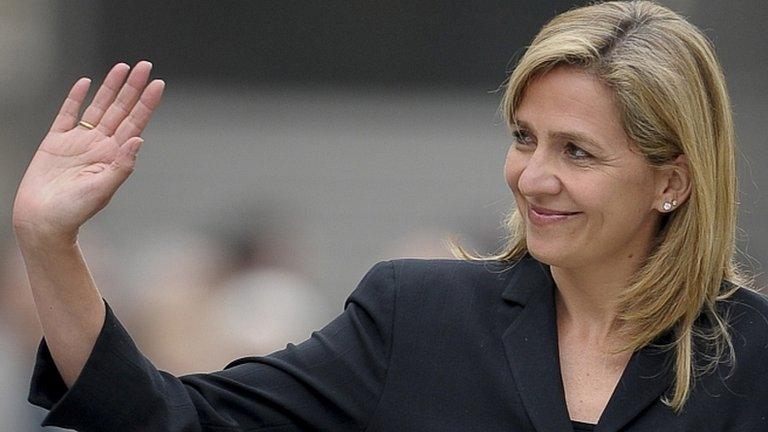Why Spain's Princess Cristina is on trial
- Published
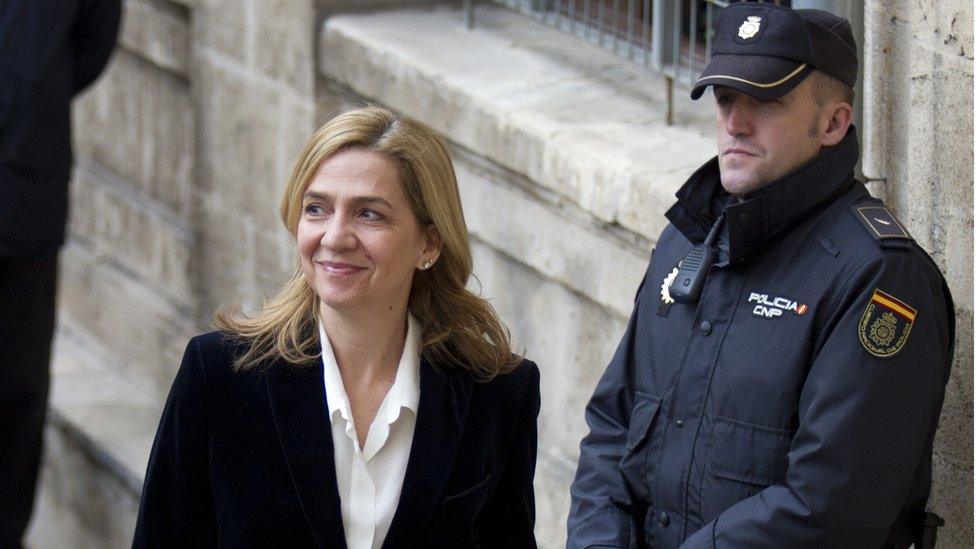
Princess Cristina denied all wrongdoing when questioned by an investigating magistrate in February 2014
For the first time in modern Spanish history, a member of the royal family has been put on trial.
Princess Cristina, the 50-year-old elder sister of King Felipe VI and sixth in line to the Spanish throne, was accused of tax fraud, after a lengthy inquiry into her husband's business activities.
She has been stripped of her title as duchess, and if convicted could face eight years in jail.
Why is Princess Cristina appearing in court?
In 2014, an investigating magistrate on the Balearic island of Majorca made Princess Cristina an official suspect in a major corruption case involving her husband, former Olympic handball player Inaki Urdangarin.
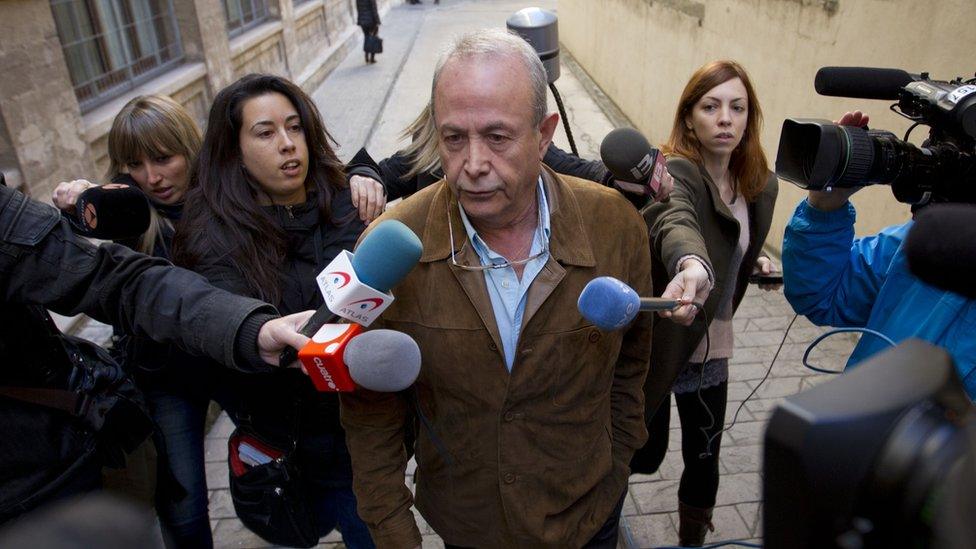
It was investigating magistrate Jose Castro's decision that the princess should stand trial
She was questioned in court and denied all knowledge of criminal activity, telling the magistrate she trusted her husband.
But the magistrate, Jose Castro, wrote in an indictment in 2015 that there were indications the princess had profited "through silent collaboration and a 50% stake" in her husband's business.
In a sign of how far the princess has fallen, the princess will sit at the back of the courtroom alongside the press.

What are the allegations against her husband?
Between 2004 and 2006, a supposedly not-for-profit organisation called Noos, of which Inaki Urdangarin was president, organised a series of sporting events for the regional governments of the Balearic Islands and Valencia.
The central allegation is that Mr Urdangarin, along with business partner Diego Torres, hugely overcharged the two regional governments.
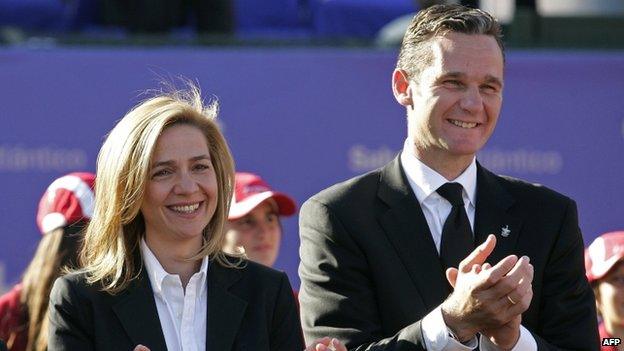
The couple married in 2004 and moved to Geneva in 2013
Allegedly, Noos received more than €6m (£4.4m; $6.5m) of public money.
Both men deny any wrongdoing. Both are charged with tax fraud and money laundering. Mr Urdangarin could face 19 years in prison.
Another 15 people are accused, including the former Balearic Islands leader, Jaume Matas.

What are the allegations against Princess Cristina?
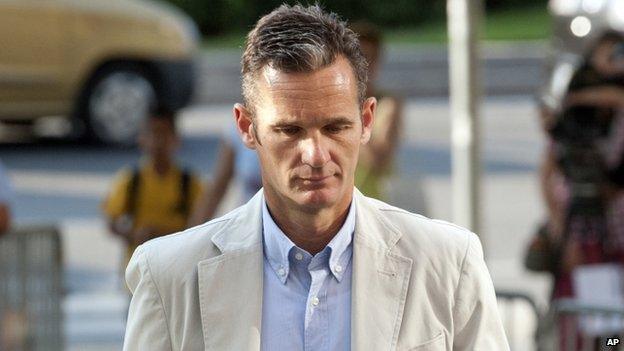
Inaki Urdangarin denies wrongdoing in the case
Princess Cristina is accused of collaborating in her husband's crimes but she has not been charged by a state prosecutor.
She is on trial because of a private prosecution brought by anti-corruption group Clean Hands (Manos Limpias).
The princess and her husband co-owned a company called Aizoon. The central allegation is that Aizoon received more than €1m from Mr Urdangarin's Noos foundation, and that the princess and her husband used some of that money for personal expenses.
Before the investigating magistrate looked into the case and said the princess had a case to answer, an anti-corruption prosecutor decided there was no evidence that she had committed crimes.
Her defence lawyer, Miquel Roca, has said she is innocent and asked the three judges to apply the "Botin doctrine", under which a private tax prosecution can be rejected if the case has not been filed by state prosecutors or tax authorities.
But like a previous attempt by her lawyers in another court in Palma in November 2014, the appeal failed and the judges ruled in January 2016 that the princess must stand trial.

Has this case hit the popularity of Spain's royals?
Spain's royal family has in effect washed its hands of Princess Cristina.
After the scandal broke, in late 2011, the couple were excluded from any official royal events or duties, as the then King, Juan Carlos, tried to protect the royal reputation.
In 2013, the couple moved to Geneva with their four children, in an attempt to spare the royal family further embarrassment. But even that move was poorly judged, as the Spanish taxpayer had to pay for their private security.
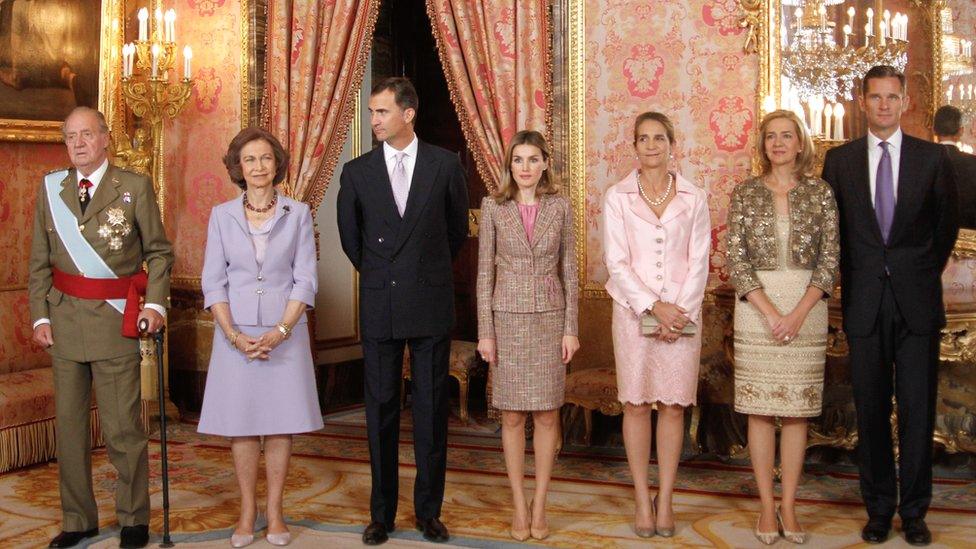
In October 2011, the princess and her husband (on far right) were still an integral part of the royal family
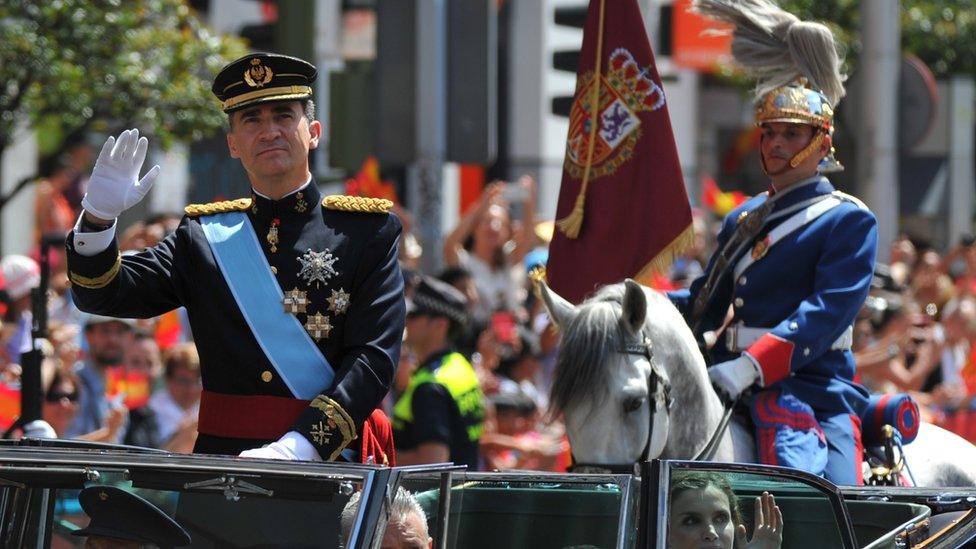
King Felipe succeeded Juan Carlos in June 2014 and soon moved to distance his family from the princess
Juan Carlos's reputation did suffer from the scandal, and took a further hit when it emerged that he had broken a hip on a lavish elephant-hunting trip. At the time Spain was in the grip of the eurozone debt crisis.
A German princess had been with the king in Botswana - so there were rumours of an affair. On his return, the king's wife, Queen Sofia, visited him in hospital only briefly.
In June 2014, Juan Carlos abdicated and was succeeded by King Felipe VI.
A year later, by royal decree of the new king, the Duke and Duchess of Palma de Mallorca were stripped of the titles given to them when they married in 1997.
Days later the couple sold their mansion in Barcelona, removing one of their few remaining links with Spain.
The princess was now referred to in court documents as Cristina de Borbon y Grecia.

Will the monarchy survive?
King Felipe is far more popular than his father was in his final years on the throne.
His decision to strip his elder sister of her title helped separate the royal family from the long-running corruption scandal.
And he is seen as more in touch with modern Spain than his father. He married TV news presenter Letizia Ortiz Rocasolano in 2004.
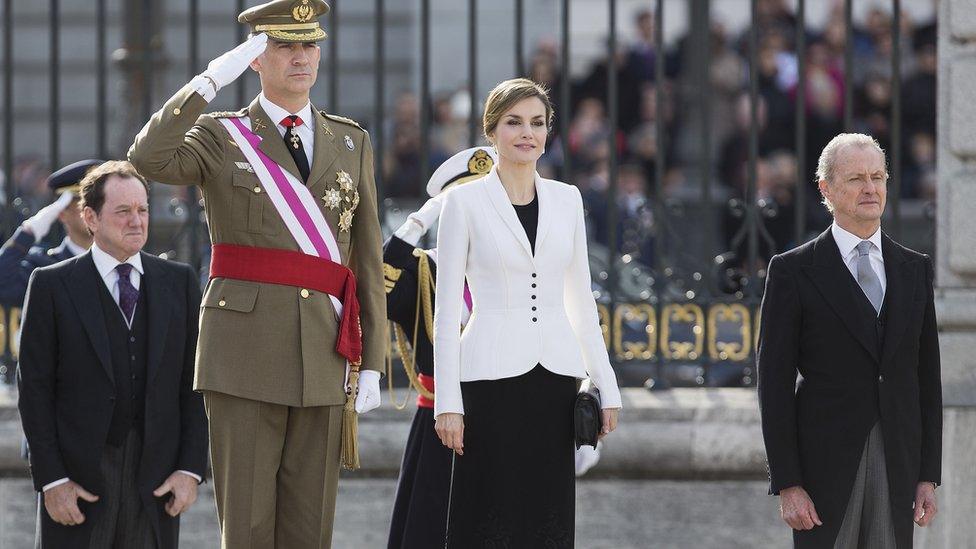
The king and queen have both risen in popularity since coming to the throne in 2014
After a year on the throne, he was given the thumbs-up by 81% of Spaniards, according to one opinion poll. Queen Letizia had ratings almost as high.
But he also faces a constitutional crisis, with pro-independence parties in Catalonia spearheading a move to separate the region from Spain.
A Catalan speaker himself, Felipe visited the region last year and called for "respect, understanding and co-existence". His Christmas message in 2015 made a direct appeal for "national cohesion".
The monarchy will survive the trial of Princess Cristina, but will have further crises to come.

- Published25 December 2015
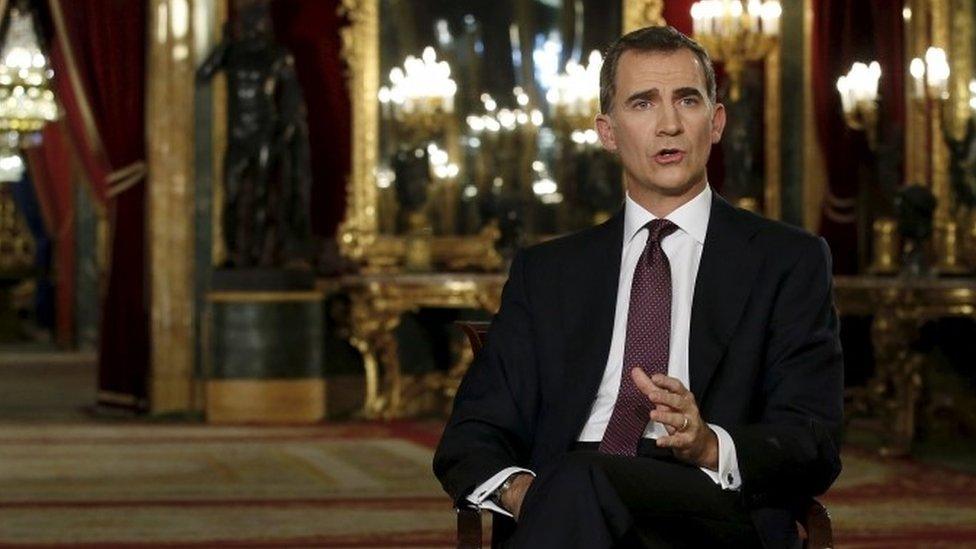
- Published7 January 2014
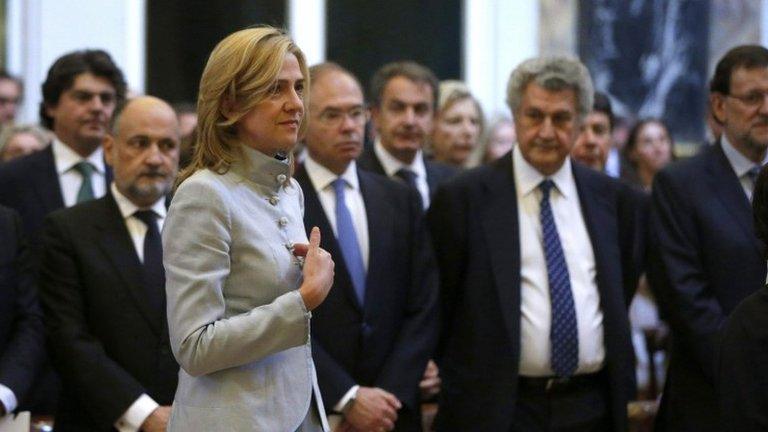
- Published8 January 2014
